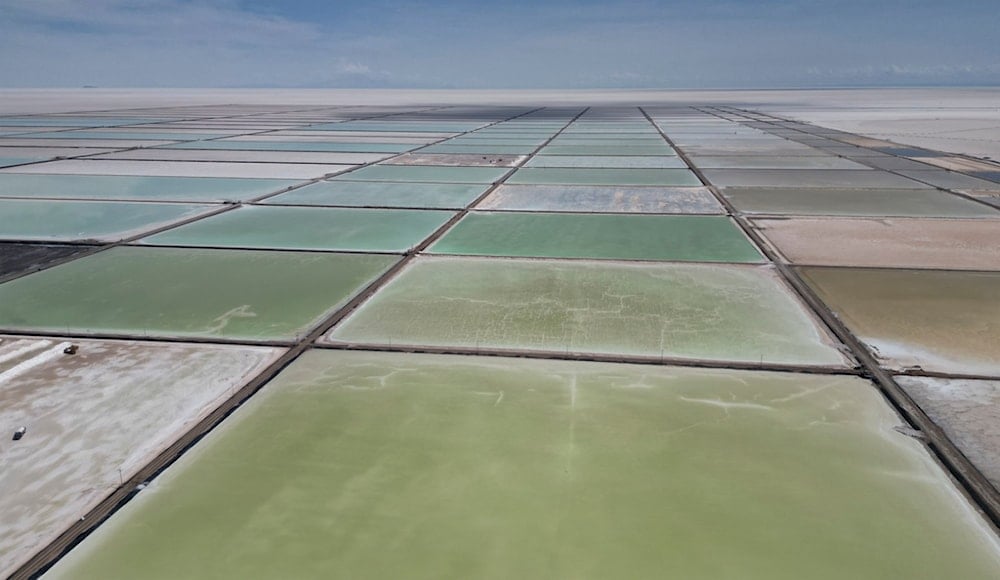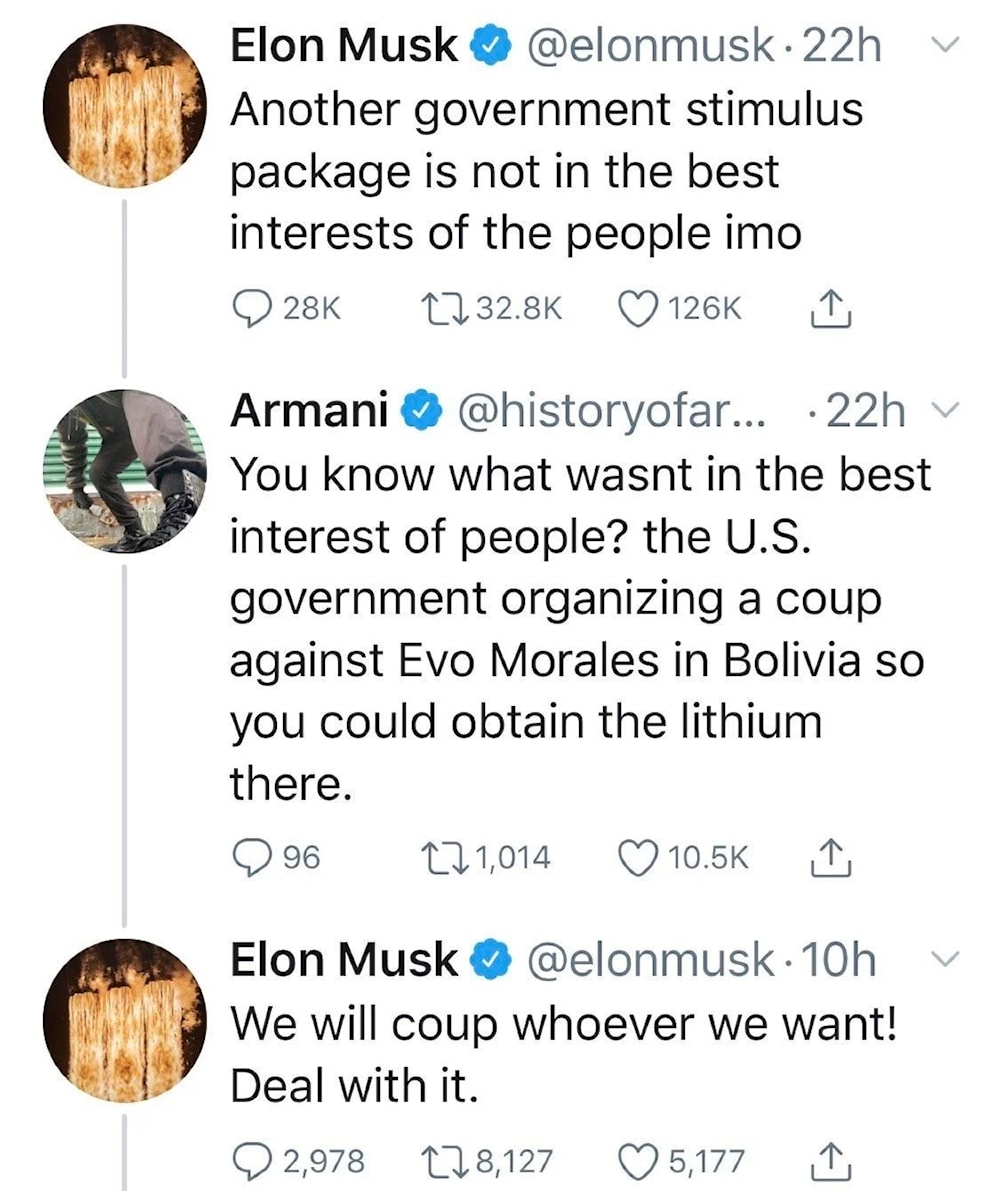Russia’s Rosatom signs agreement with Bolivia to build lithium plant
Rosatom noted that the plant will employ Russian adsorption-type direct lithium extraction technology, praised for its efficiency and environmental safety.
-

Salt recovery pools stand in different degrees of evaporation for an industrial plant that produces lithium carbonate to manufacture lithium batteries, after the plant's opening ceremony in the Uyuni salt desert on the outskirts of Llipi, Bolivia, Friday, Dec. 15, 2023. (AP Photo/Juan Karita)
Russian state nuclear corporation Rosatom announced on Wednesday that its international uranium mining subsidiary, Uranium One Group, has signed an agreement with Bolivian lithium company YLB to establish a lithium carbonate production facility in the southern city of Potosi, Bolivia.
The plant will be situated in the Uyuni Salt Flats, the world's largest lithium-bearing salar, located at an altitude of 3,650 meters (12,000 feet) and spanning over 10,500 square kilometers (2.5 million acres). According to Rosatom, the facility is expected to begin operations in the second half of 2025, with a gradual production ramp-up to 14,000 tonnes of lithium carbonate annually.
Rosatom noted that the plant will employ Russian adsorption-type direct lithium extraction technology, praised for its efficiency and environmental safety. This technology avoids the use of aggressive chemicals and incorporates a system for maximizing water recycling, thus protecting the salar's ecosystem.
Bolivian President Luis Alberto Arce Catacora attended the official signing ceremony. The agreement still requires ratification by the Bolivian parliament to move forward.
YLB Executive President Omar Alarcon announced that Uranium One Group would invest over $970 million in the plant's construction. Russian Ambassador to Bolivia, Mikhail Ledenev, described the agreement as a significant step toward strengthening cooperation between Russia and Bolivia.
Big L for Tesla
Observers say that this agreement is likely upset Elon Musk for several reasons. As Tesla is heavily dependent on lithium for its electric vehicle batteries, the partnership may increase competition for access to Bolivia’s vast lithium reserves.
Two years ago, Musk blatantly expressed his support for a US-backed coup in Bolivia against Evo Morales, a democratically-elected president who implemented a series of socially progressive policies in his country that conflicted with US interests.
Bolivia has one of the world’s largest lithium reserves and is attractive to capitalists and international companies like Tesla who seek to profit from the growing demand for the mineral to power electric cars and storage batteries.
Even though Musk deleted the provoking Tweet, the comment remains a clear illustration of the capitalist motivations behind imperialist aggression.
Read more: Elon Musk, US sniffing around Argentina's untouched Lithium reserves

 2 Min Read
2 Min Read









